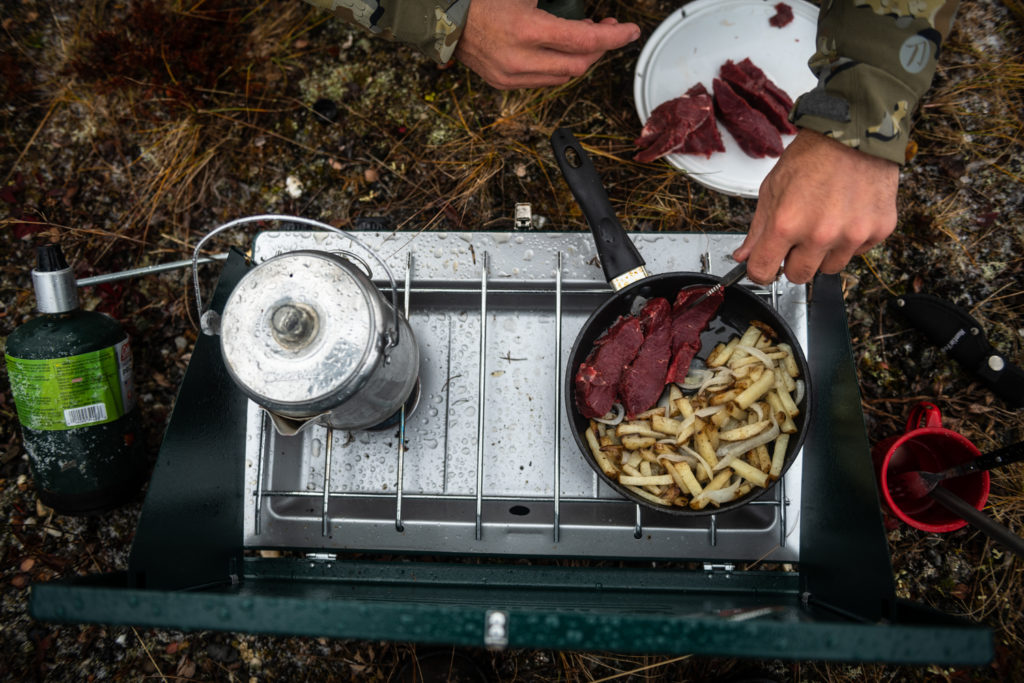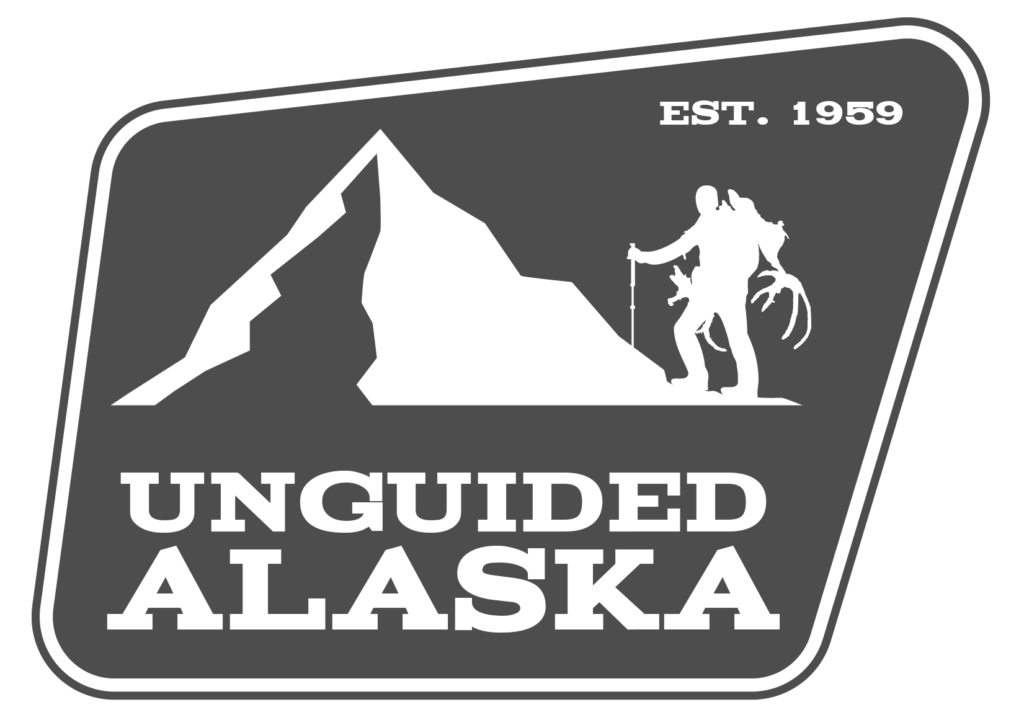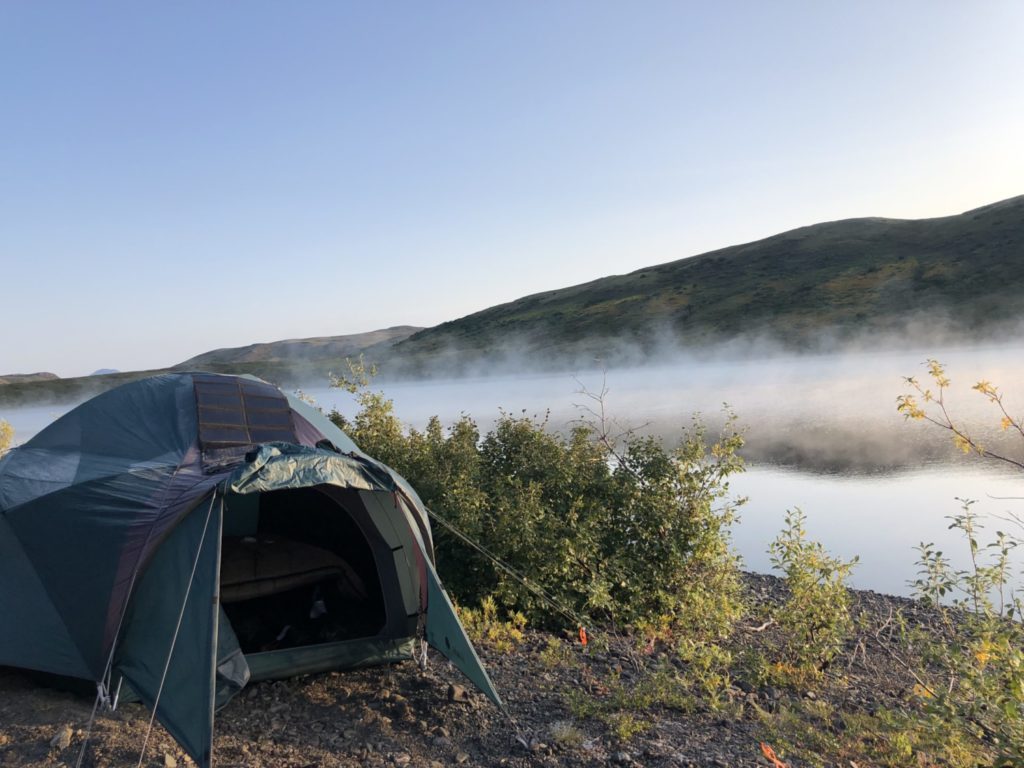- Camps go in, and out of the field with the hunters.
- Weight limits for Camp Rental hunters is 60 pounds of gear per person. This includes all of your personal gear, weapon, 0 degree rated sleeping system, backpack, field dressing equipment and game bags.
- Weight limits for Transport Only hunters is 120 pounds of gear per person.
- Additional fuel surcharges will be assessed when weight limits are exceeded on a case by case basis.
- You are responsible for setting up camp and taking it down.
Camp Rental
Bringing all of the gear needed for this hunt with you on the airlines is difficult and expensive. There are also some critical items that cannot be taken on commercial flights. For that reason most of our clients choose the Camp Rental and Food Package. If you bring your own camp, be sure to look at our gear list to make sure that you have the essentials covered and are within weight limits.
Setting Up Camp
There are few key components to consider when selecting a campsite: access to water, ground surface, sight lines, protection from the elements, and possibly access to firewood.
Access to Water
Situating your campsite near a good water source for cooking and doing dishes is always a good idea. Camping too close to water can be noisy, so setting it back a bit is a good idea. You are responsible for your own drinking water and purification system for your trip.
Try to Find Dry Ground
Pitching your tent on the soft tundra might seem like a good idea, but you’ll most likely end up with a soggy tent floor and a damp sleeping bag. Instead, look for small, flat gravel patches.
Glassing from Camp
It’s always nice to be able to glass right from camp. Plus, if there are bears in the area (and there probably will be), being able to keep your eyes on them is a good thing. It might be tempting to set up your tent on a high ridgeline or prominent lookout; the glassing is great, the views are phenomenal, and your photos look fantastic. However, avoid the temptation to place your tent in such exposed locations.
Strong winds are common and can occur unexpectedly. Instead, choose locations at a lower altitude if possible and look for a windbreak, such as a stand of trees, or a rock outcropping to shelter your tent. Winds typically move down valleys, so focus on protecting yourself from the uphill direction. And remember to always use the guide lines on your tent; a calm evening can be followed by a midnight windstorm, with little warning.

Cooking Location and Food Storage
Cooking in or near your sleeping area is not advisable when in bear country. PLEASE DO NOT COOK IN YOUR TENT. Instead, set up a kitchen or cooking area where food is prepared some distance from your sleeping area. Build a meat pole away from the tent, but within sight to hang your game bags on once you harvest your animal. If you are unable to build something strong enough to hold game bags, at least build something they can lay on that gets them up off the ground and allows air to flow completely around them. Always try to put meat in the shade (cover it with a tarp if necessary), and in an area with good airflow.


